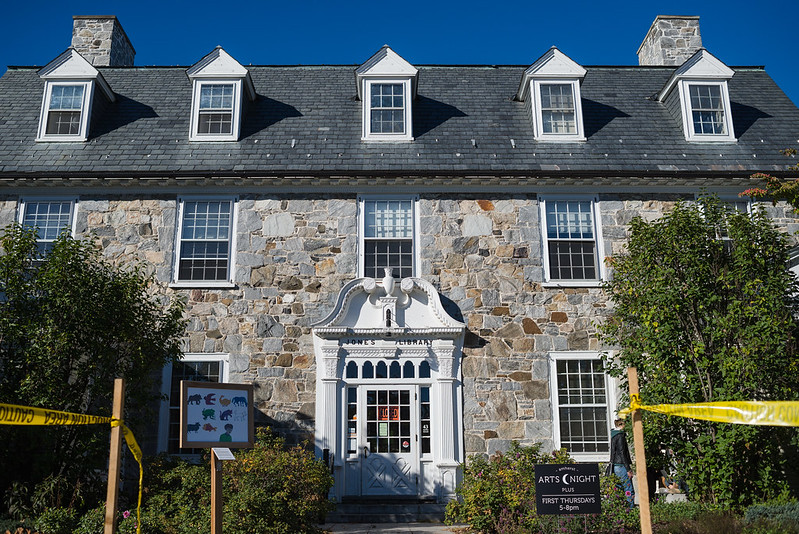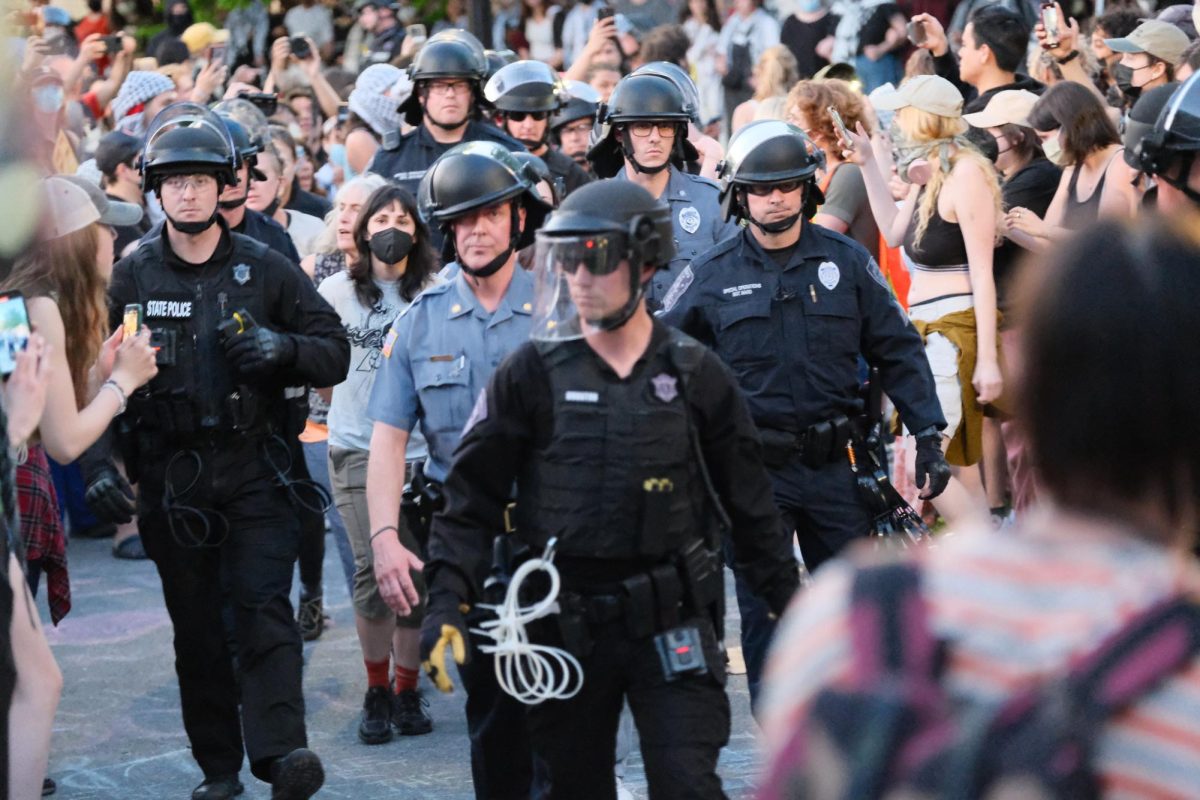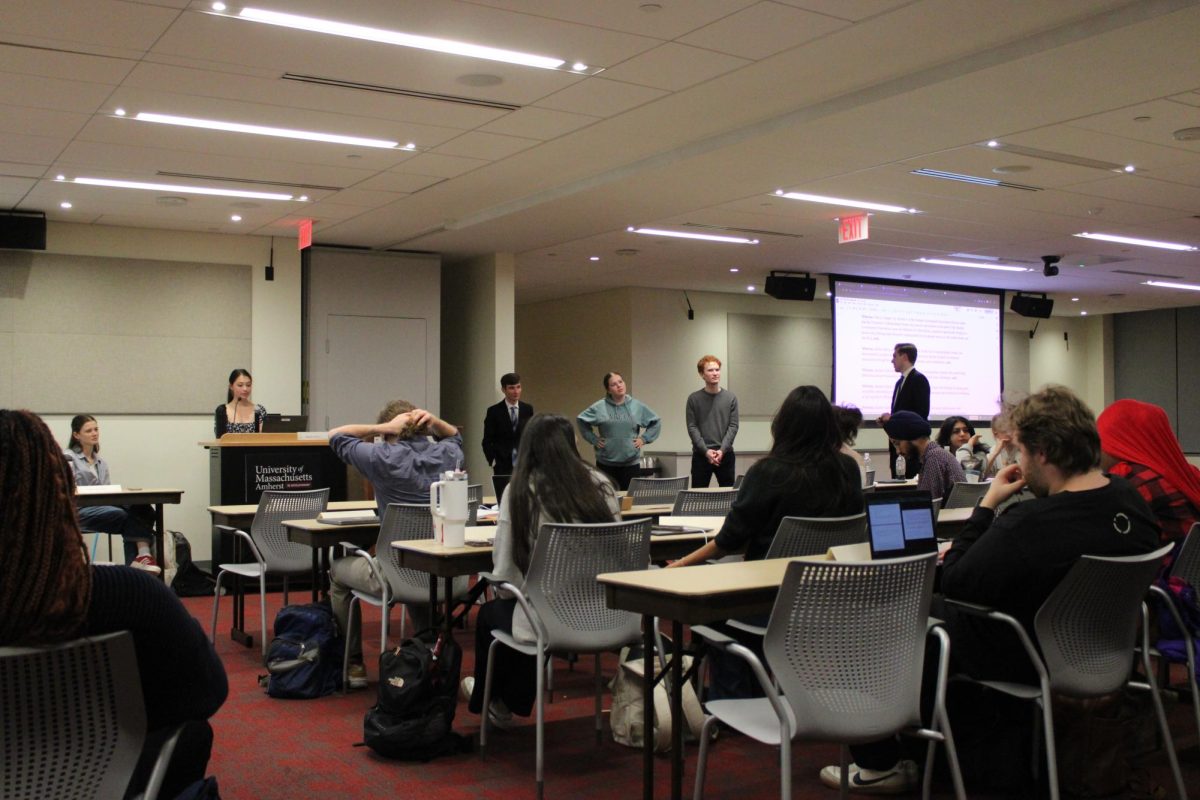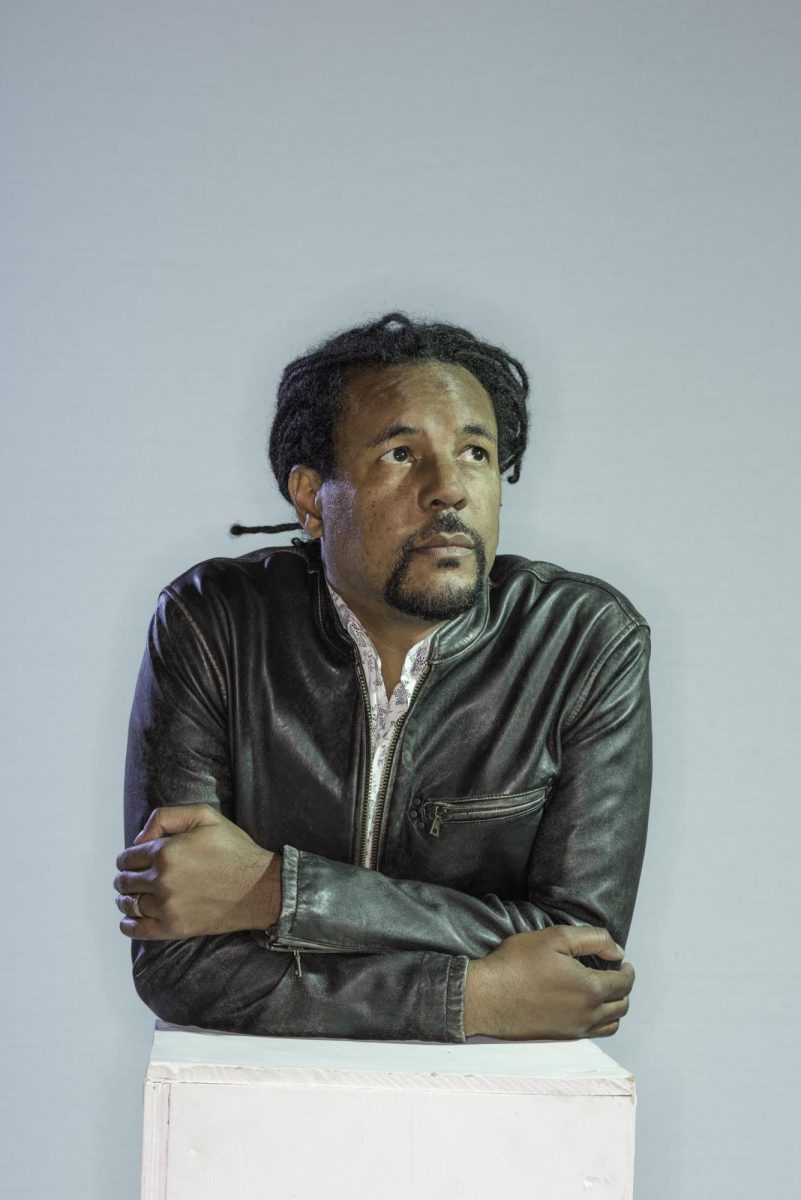Francisco Perez, an economics graduate student at the University of Massachusetts, facilitated a community discussion on Wednesday evening at the Jones Library to discuss the rise of right-wing economic policy in America.
The discussion, which was co-hosted by the Jones Library and the UMass History Department, centered around Nancy MacLean’s book “Democracy in Chains: The Deep History of the Radical Right’s Stealth Plan for America.” The book details “the radical right’s relentless campaign to eliminate unions, suppress voting, privatize public education, stop action on climate change and alter the Constitution” according to the event’s page.
In the book, MacLean also tells the story of James McGill Buchanan, a 20th century American economist at the University of Virginia. Buchanan founded the Virginia School of Political Economy, which, MacLean argued, helped promote policies to limit democracy for the poor in favor of the rich.
“The book is about two things,” Perez said. “It is about the rise of right-wing libertarianism in the United States and their success in molding American political institutions in the last three or four decades, and the specific role of the economist James Buchanan as a sort of leading intellectual and propagandist for this movement.”
Perez also explained that the book emphasizes the racial undertones of Buchanan’s ideology and the work he produced.
“[MacLean] exposed them for what they are, which is this ideology, which is written in very abstract mathematical terms, very ‘this is just rational, logical behavior, everyone is self-interested, why would that not extend to the public sector,’” Perez said, “that is actually very rooted in America’s legacy of slavery and colonialism.”
MacLean claimed that Buchanan promoted neoliberal policies, focused on conservative free-market ideals, that the rich used to change American policy and keep power for themselves.
Perez went on to relay information MacLean provided in the book on Virginia around the time when Buchanan began working there and founded his school of political economy. MacLean cites in the book that 10 percent or less of people in Virginia could vote in 1956 and that Virginia legislators shut down schools and gave vouchers to white parents to choose where their children went to school rather than have the schools be desegregated.
When asked from a member of the discussion on how MacLean was able to get this information from the University of Virginia, Perez explained that she was able to obtain it from an archive that was not guarded after the University moved to Arlington to be closer to Washington D.C.
Later in the discussion, Perez related Buchanan’s ideals to the financial crisis in 2007. According to Perez, the federal government gave bailouts to the rich during the crisis, which he described as “private gain, public pain.”
Easthampton resident David Rosoff came to the discussion to know more about the current social and political climate in America.
“I knew some aspects of why we are where we are, but I didn’t understand everything behind it and how it came to be, which is what this book explains,” Rosoff said.
Gareth Barr, a current resident of Amherst, was one of about 15 who attended the event because he wanted to “stay involved in leftist causes” after recently graduating from Connecticut College with a degree in political science. After the event, Barr felt the “ties between economics and race” were the one of his biggest takeaways.
“I knew [the ties between economics and race] were there, but the idea that a lot of this began in reconstruction, when the South was trying to retain white supremacy and used economics to do that, is very interesting,” Barr said.
Will Mallas can be reached at [email protected] and followed on Twitter @willmallas.





















joeyd • Nov 20, 2019 at 5:40 am
This sounds like it would have been a really fun talk to attend. I love hearing about conspiracy theories! Stealth underground societies that pull the strings! Is there connection between the right-win and illuminti? And who knew “abstract mathematical terms” could actually be rooted in slavery? Unbelievable! It sounds like it was a very educational talk.
How do you join secret or ‘stealth’ societies if they are secret?